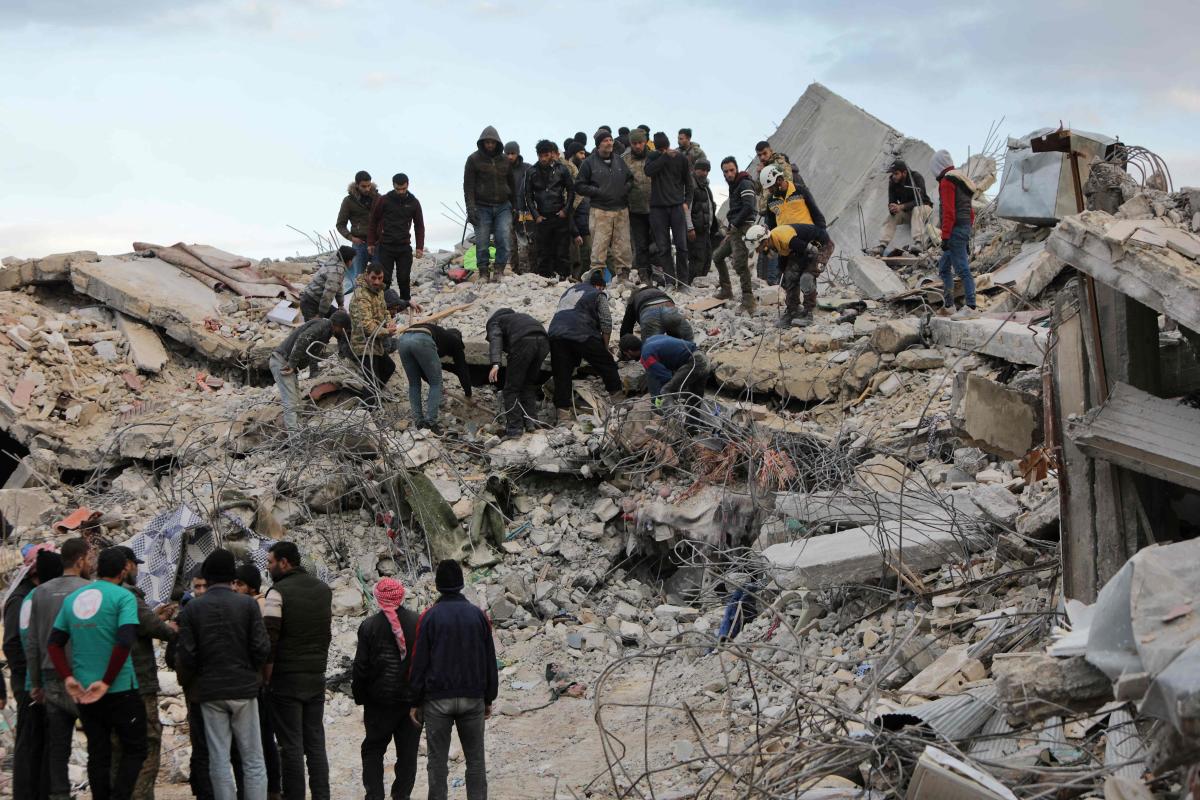
The 7.8-magnitude earthquake struck while people were sleeping on Monday, flattening thousands of structures, trapping an unknown number of people, and potentially affecting millions.
Rescuers in Turkey and Syria battled bitter cold on Tuesday as they raced against the clock to find survivors under buildings flattened by an earthquake that killed over 9,500 people.
Tremors added to the suffering in a border region already besieged by conflict, leaving people on the streets burning debris to stay warm as international aid began to arrive.
However, some extraordinary survival stories have emerged, including a newborn baby pulled alive from rubble in Syria, still connected to her mother, who died in Monday’s earthquake, by her umbilical cord.
Whole rows of buildings collapsed, causing some of the most severe devastation near the epicenter of the earthquake between the Turkish cities of Gaziantep and Kahramanmaras.
Because of the devastation, Turkish President Recep Tayyip Erdogan declared a three-month state of emergency in ten southeastern provinces on Tuesday.
Dozens of countries, including the United States, China, and the Gulf States, have pledged to assist, and search and relief teams have begun to arrive by air. People in some of the hardest-hit areas, however, said they were left to fend for themselves.
A winter storm has added to the misery by making many roads, some of which were damaged by the earthquake, almost impassable, resulting in traffic jams that stretch for kilometers in some areas.
The cold rain and snow endanger both those forced from their homes – who sought refuge in mosques, schools, and even bus shelters – and survivors buried beneath debris.
According to the most recent figures, 5,434 people were killed in Turkey and at least 1,872 in Syria, for a total of 7,306 deaths. There are fears that the death toll will continue to rise inexorably, with WHO officials estimating that up to 20,000 people may have died.
The World Health Organization warned that the massive earthquake could affect up to 23 million people and urged nations to rush aid to the disaster area.
As President Bashar al-government Assad’s remains a pariah in the West, international relief efforts are complicated, according to the Syrian Red Crescent.
On Monday, Washington and the European Commission announced that humanitarian programs funded by them were responding to the devastation in Syria.
UNESCO, the United Nations’ cultural agency, also stated that it was prepared to assist after two World Heritage sites in Syria and Turkey were damaged.








